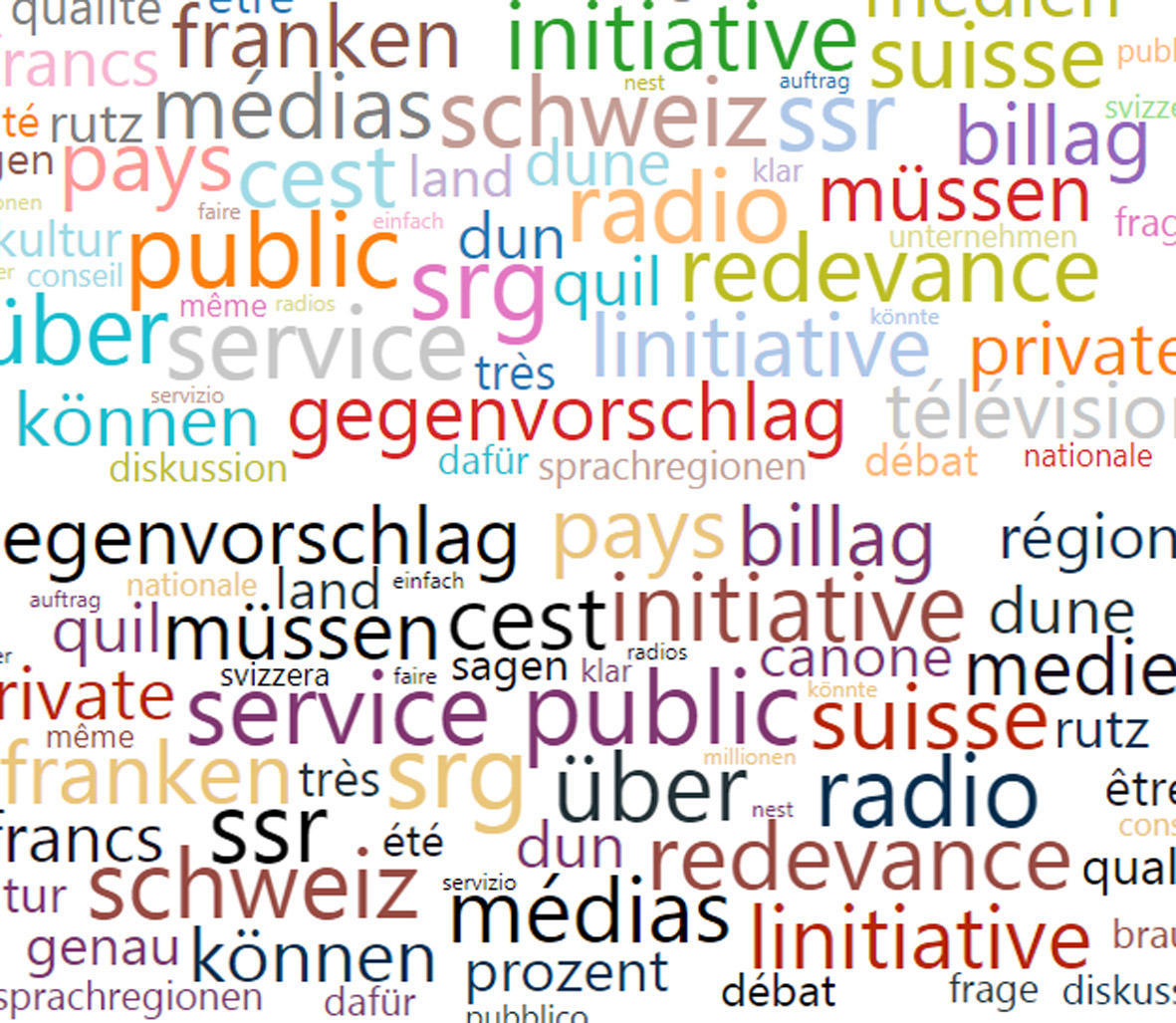‘Would you still vote no if you had to pay?’
Parliamentarian Claudio Zanetti represents the People’s Party on the board of the Organisation of Swiss Abroad (OSA). But while the OSA has come out against the ‘No Billag’ initiative, Zanetti supports it. Those who don’t pay the licence fee should keep quiet about it, he writes.
Swiss citizens living abroad are happy to watch programmes made by the Swiss Broadcasting Corporation (SBC). They thus show their attachment to their homeland, which is rather nice, and a cause for celebration.
But things get problematic when this “Fifth Switzerland” [term for Swiss living abroad] push for the introduction of taxes that they themselves don’t have to pay. In the long term, it is not in the interest of the Swiss abroad to see the principle of ‘no taxation without representation’ suddenly replaced by the principle of ‘taxation without representation.’
swissinfo.ch is an institution of the Swiss Broadcasting Corporation (SBC) and is financed by the Billag licence fee.
Contrary to how it was presented in the press release, the decision of the OSA’s committee to recommend rejecting the ‘No Billag’ initiative was not unanimous. In fact, I even proposed that we declined to take any position. Experience shows that those who must pay for a service are less happy to do so when instructed by others who, for the most part, do not have to.
When the outcome of a vote is tight, especially, it is difficult to avoid the claim that particular interests prevailed. We only need think of the 5,000 votes that tipped the balance for the introduction of a biometric passport in Switzerland, or the rejection of the initiative to curb abuses in the asylum system [from 2002]. In both cases the Swiss abroad swung the vote, by being in favour of the former and rather opposed to the latter.
In 2015, the government and a majority in parliament succeeded – without a constitutional foundation! – in introducing a new tax on radio and television by taking care to systematically use the term ‘licence fee’ to hide their constitutional violation.
When it came before the people, the difference was just 3,696 votes – less than 0.2% of the population. The votes of Swiss abroad were decisive, and the project would not have been accepted without them. Studies have shown a huge difference between the votes of Swiss citizens at home and that of the Swiss abroad: in Canton Zürich, for example, 52% of voters rejected the change. But it was approved by 63.2% of Swiss abroad who were registered in that canton (4,470 said ‘yes’, 2,600 ‘no’).
Should we therefore be surprised when Senator Andrea Caroni of the Radical-Liberal Party demands that the Federal Council limit, based on the criteria of residence, the length of time Swiss abroad can continue to exercise their political rights after leaving the country?
Cosmopolitan complaints
An organisation that claims to be cosmopolitan and likes to explain to Eurosceptic Swiss that they “can’t have their cake and eat it”, or that the times of skimming the cream are over, is unfortunately caught in its own game. This bad PR operation is not in its interest and feeds the demands of Caroni directly. In the long term, those who are disdainful or who eschew fundamental political rules to further their self-interest will harm themselves. They will become just another of the innumerable lobby groups in Parliament.
The principle of causality is more and more present in administrative law. If something is fundamentally fair, how can it be bypassed in certain cases? And why should someone pay for a service that not only he or she doesn’t want, but that he or she rejects for political reasons? Not to mention the fact that for this same service there is a perfectly-functioning market.
Let’s do a thought experiment and imagine that each Swiss person living abroad would, from 2019, have to pay CHF365 each year to the SBC because this institution is, as it is claimed, essential for forming the political conscience. Honestly! Wouldn’t the solidarity argument simply melt like snow in the sun? And wouldn’t a lot of people suddenly discover that the Internet can provide, free of charge, an almost unlimited quantity of information?
For the OSA, it would have been smarter to exult silently the likely defeat of this initiative. Rather it would have been better to react strongly to the Federal Council’s plan to provide administrative assistance to other countries even when their request is based on stolen data. But the OSA did not do this, despite the problems that the Swiss abroad are having with their accounts in Switzerland. We need to ask whose interests are being served here.
The views expressed in this article are solely those of the author, and do not necessarily reflect the views of swissinfo.ch.
Opinion series
swissinfo.ch publishes op-ed articles by contributors writing on a wide range of topics – Swiss issues or those that impact Switzerland. The selection of articles presents a diversity of opinions designed to enrich the debate on the issues discussed.

More
‘No Billag is an attack against Switzerland’

In compliance with the JTI standards
More: SWI swissinfo.ch certified by the Journalism Trust Initiative




You can find an overview of ongoing debates with our journalists here . Please join us!
If you want to start a conversation about a topic raised in this article or want to report factual errors, email us at english@swissinfo.ch.